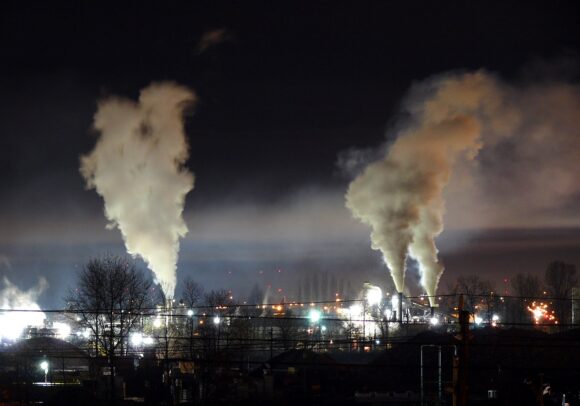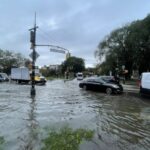Air quality alerts have been issued across large swaths of Canada and the northern United States due to thick smoke from ongoing wildfires, with health officials urging the public to “limit time outdoors” as pollution levels soar.
Environment Canada has released widespread warnings, particularly for the province of Ontario, stating that wildfire smoke has severely degraded the air. On Monday, Toronto’s air quality ranked among the worst in the world, prompting officials to issue a special advisory. “When air pollution levels are high, everyone should limit time outdoors,” the agency stated. “Consider reducing or rescheduling outdoor sports, activities and events.”
The alert emphasized that certain groups face heightened health risks, including the elderly, pregnant women, infants, young children, and individuals with chronic illnesses or pre-existing health conditions.
In the United States, similar advisories have been issued. The National Weather Service in Chicago warned residents to take precautions through Tuesday evening due to elevated ozone levels and residual smoke drifting in from Canada. “An Air Quality Alert is in effect through Tuesday evening for the Chicago metro area in Illinois and in northwest Indiana due to unhealthy ozone levels and some lingering effects of Canadian wildfire smoke,” the agency posted on X (formerly Twitter).
The smoke is the result of relentless wildfires spreading across thousands of hectares in Canada, particularly in Manitoba, Saskatchewan, and northern Ontario. These fires have already forced thousands of residents to evacuate their homes. In Ottawa, Prime Minister Mark Carney is scheduled to meet with emergency response teams to evaluate the crisis and coordinate relief efforts.
The emergency has reached political circles in Washington, where frustration over the transboundary impact of Canada’s wildfires has boiled over. Last week, six members of the U.S. Congress wrote a formal letter to the Canadian ambassador, expressing concerns that wildfire smoke was interfering with Americans’ ability to enjoy the summer season.
In a pointed response, the premier of Manitoba criticized the U.S. lawmakers for “trying to trivialize” a life-threatening situation, highlighting the dire conditions being experienced by Canadians on the ground.
The scale of the disaster is vast and growing. May and June were particularly devastating months for western Canada, where approximately 30,000 residents were displaced due to uncontrolled wildfires in Saskatchewan and Manitoba. Both provinces have declared states of emergency to mobilize additional resources and manage the evacuations.
Meanwhile, in eastern Canada, a new fire that ignited on Monday on Newfoundland’s Bonavista Peninsula doubled in size overnight. According to CBC News, the blaze destroyed several cabins near Chance Harbour and continues to pose a significant threat to surrounding areas.
Scientists have repeatedly linked the increase in wildfire frequency and intensity to climate change. Canada, in particular, is warming at twice the global average rate, with its Arctic regions heating nearly three times as fast, according to environmental researchers.
As the wildfires rage on and the smoke continues to blanket regions far beyond Canada’s borders, the urgency for both domestic action and international cooperation grows more apparent. The health, environmental, and political stakes of this wildfire season are escalating—and the full toll is yet to be seen.






